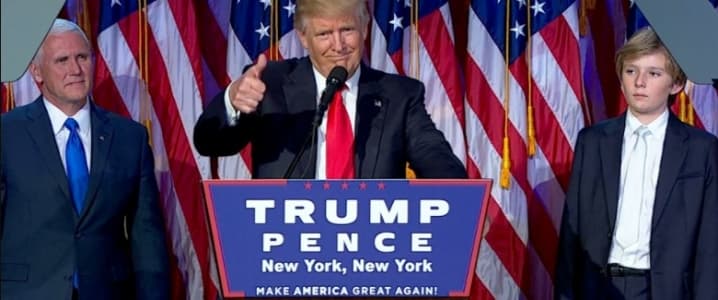Despite Washington´s pressing resistance against sharing their nuclear technology with Saudi Arabia, it seems far more unbearable for the U.S. to be skipped from the first groups to strike a deal with the kingdom — or even worse, the possibility to be left out at all on this promising deal.
Saudi Arabia is currently in negotiation with 10 countries in order to pursue their nuclear plans. According to World Nuclear, Saudi Arabia plans to build around 16 reactors in the next 20 to 25 years, at an estimated sum of $80 billion, and it projects 17 GWe of nuclear capacity by 2040 to provide 15% of the total power, along with over 40 GWe of solar capacity.
The first negotiations with the U.S. took place back in 2012, but Washington’s nonproliferation concerns put a halt to Saudi’s plans on using enriched uranium and processed protonium for energy purposes. Despite this, in order to speed up the negotiations process, the Gulf kingdom recently promised to award contracts to the countries willing to build the first two nuclear reactors.
Although King Abdullah has not yet officially confirmed the current bidders, according to a February 19 CNBC interview with Saudi Minister of Foreign Affairs, Adel al-Jubeir, “[The kingdom is] looking at a number of countries for peaceful purposes.”
It’s widely believed that Russia, the U.S. and Korea are among the bidders.
The kingdom’s nuclear ambitions were first announced back in 2009, where they ‘’expressed growing concern with the kingdom’s growing demand for alternative sources of energy, the need for water desalination and their intention to transition away from oil.” Related: Saudi Arabia Looks To Profit From The U.S. Shale Boom
In June, 2015, Saudi Arabia signed a ’program of cooperation’ with Russia, where they hope to collaborate on small- and medium-sized reactors, which are meant for both power generation and desalination purposes.
Korea, on the other hand, is currently already working on the first nuclear reactors in the area, which is currently being built in Barakah by KEPCO in collaboration with ENEC.
The country’s insistence on obtaining its right to enrich uranium has pressed the Trump administration to review its 123 agreement of the U.S. Atomic Energy Act of 1954. The agreement is known as a peaceful nuclear cooperation pact, where the U.S. acknowledges Saudi’s technology usage will be used for harmless civil nuclear intentions only. If the U.S. refuses to renegotiate these terms on time, it might not only jeopardize their future relations with the Gulf kingdom, but also runs the risk of missing out on the chance of profiting from these new market opportunities.
Why Opt for Nuclear Energy?
Although UAE´s true nuclear plans intentions remains uncertain, The King Abdullah City for Atomic and Renewable Energy (KA-CARE) website states “the nation is facing high rates of demand for energy and desalinated water and it is expected to exceed 120GW in 2032.”
It stresses the need to build an energy program that can meet the country’s growing demand, and at the same time invest in new, more environmentally friendly solutions instead — those that offer alternatives to reduce oil depletion. Related: The U.S. Oil Industry Sets Its Sights On Asia
KA-CARE also says it’s their right to look for nuclear energy, since it is not only them, but also the rest of the world that will eventually make the transition to more sustainable sources of energy (other than fossil fuel, as they are a non-renewable resource), and nuclear technology appears to be the next best option.
On the other hand, another reason for the kingdom’s interest in nuclear technology could also be related to the growing tension with Iran.
ADVERTISEMENT
Iran first signed a ‘civil nuclear’ agreement with the United States in 1957. A couple of years later, the first nuclear research center was opened, which was supplied by the United Sates.
In 2009, Iran announced it discovered uranium on national territory, which was vital for their nuclear program. Iran currently faces sanctions by the Trump administration because they have failed to comply with the nuclear civil agreement, as it has been speculated that Iran is working on a missile program.
It seems inevitable that Saudi Arabia will continue to work on their nuclear program, even if the U.S. fails to agree to the UAE’s terms on time. If not the U.S., then another bidder won’t hesitate to get a piece of the billion-dollar deal.
By Arianna Nunez for Oilprice.com
More Top Reads From Oilprice.com:
- Toyota Finds A Way To Make Cheaper EVs
- What Is The Right Price For Oil In A Balanced Market?
- Has OPEC Been Too Successful?



















The criteria for Saudi Arabia's nuclear programme are the right to enrich uranium using its own reserves, non-interference in its nuclear programme and accepting the most reliable and cheapest bidder.
Saudi Arabia should endeavour to seek a nuclear partner who could build cost-effective state-of-the-art nuclear reactors and train Saudi scientists and technicians and assist them in running the nuclear installations without imposing conditions. South Korea, China, Russia and France fall within this category.
While Russia could prove to be the cheapest bidder, South Korea has the advantage in that it is already working on the first nuclear reactors in the area, namely, in UAE.
If the United States wants to partner with Saudi Arabia on nuclear deal, then it has to meet Saudi Arabia’s criteria.
Dr Mamdouh G Salameh
International Oil Economist
Visiting Professor of Energy Economics at ESCP Europe Business School, London